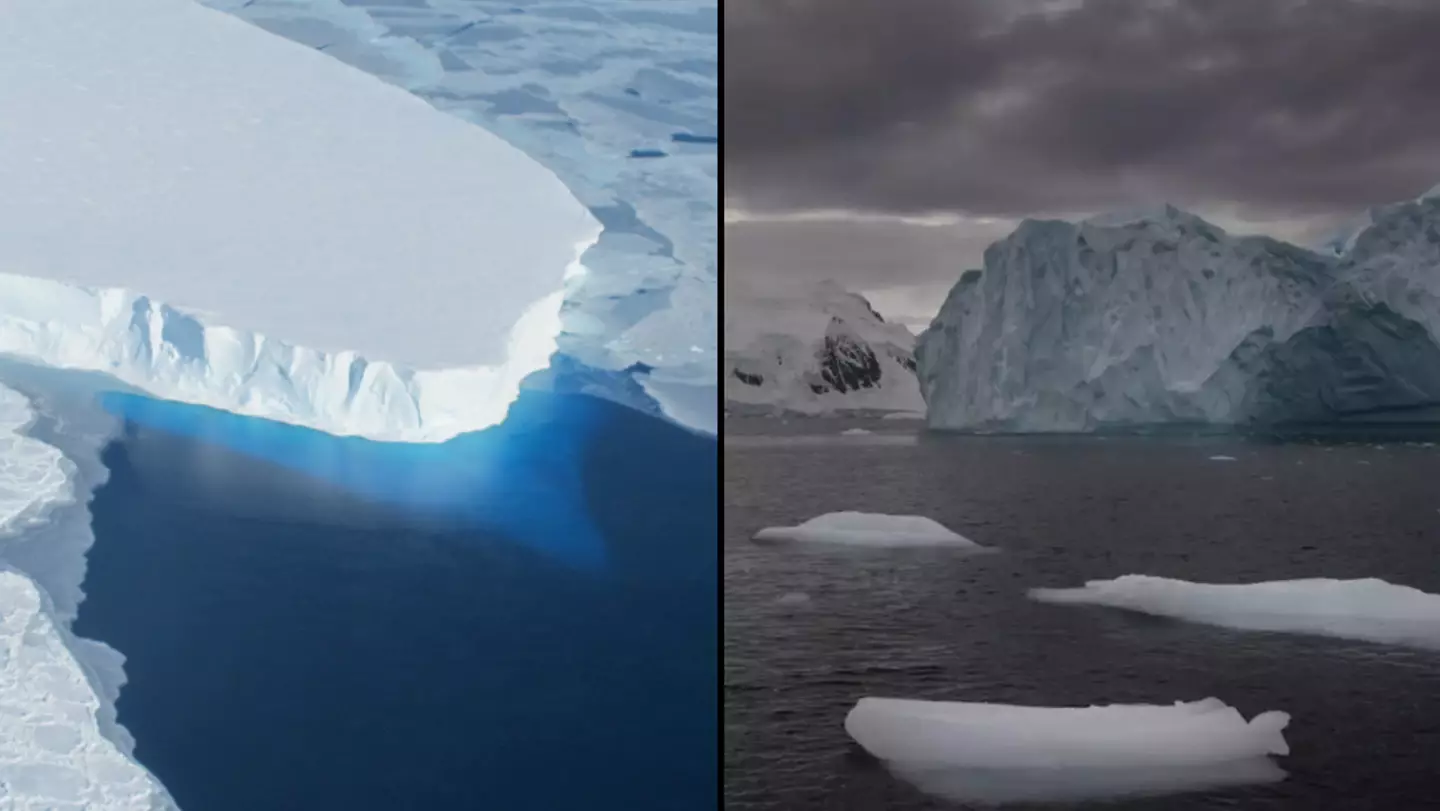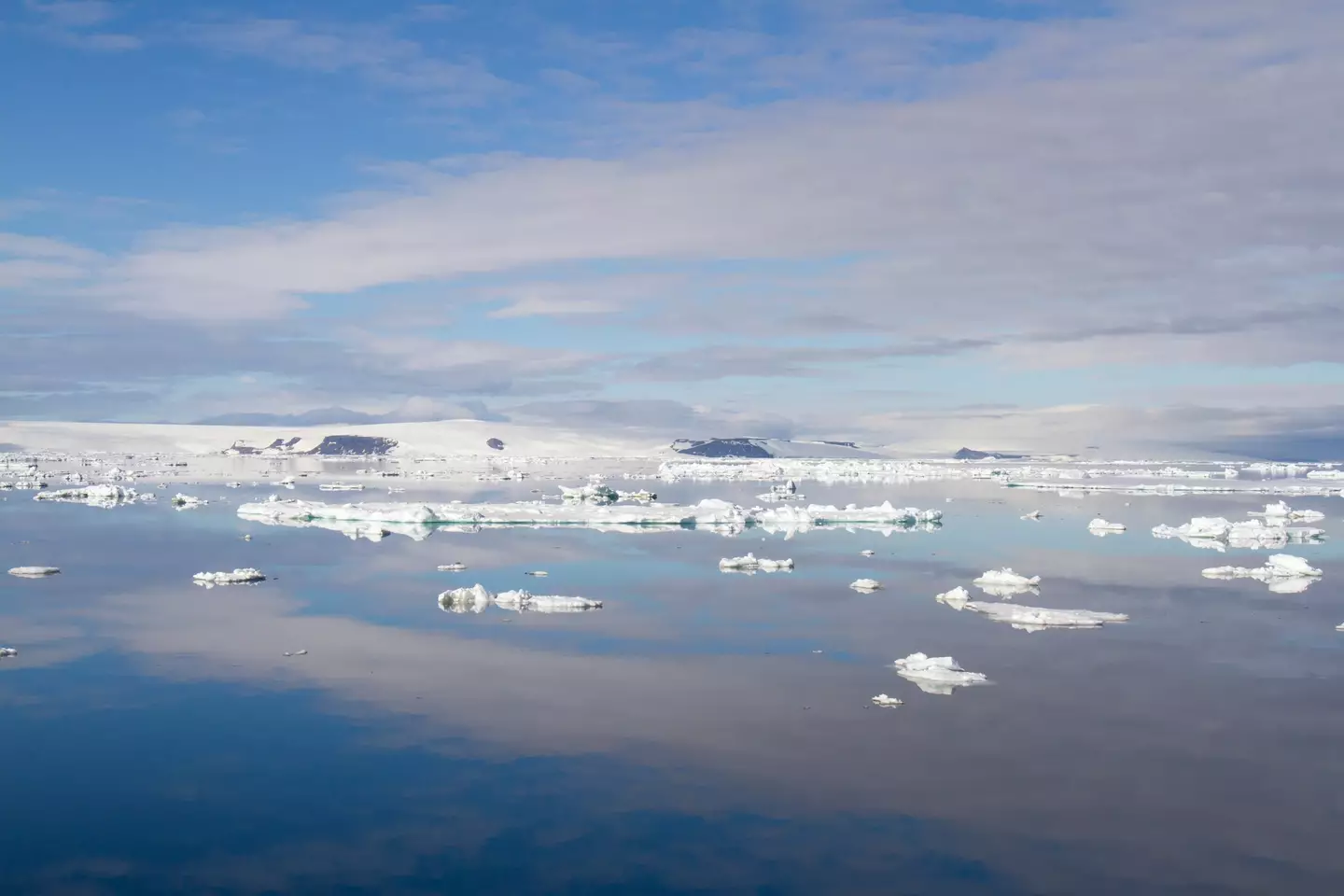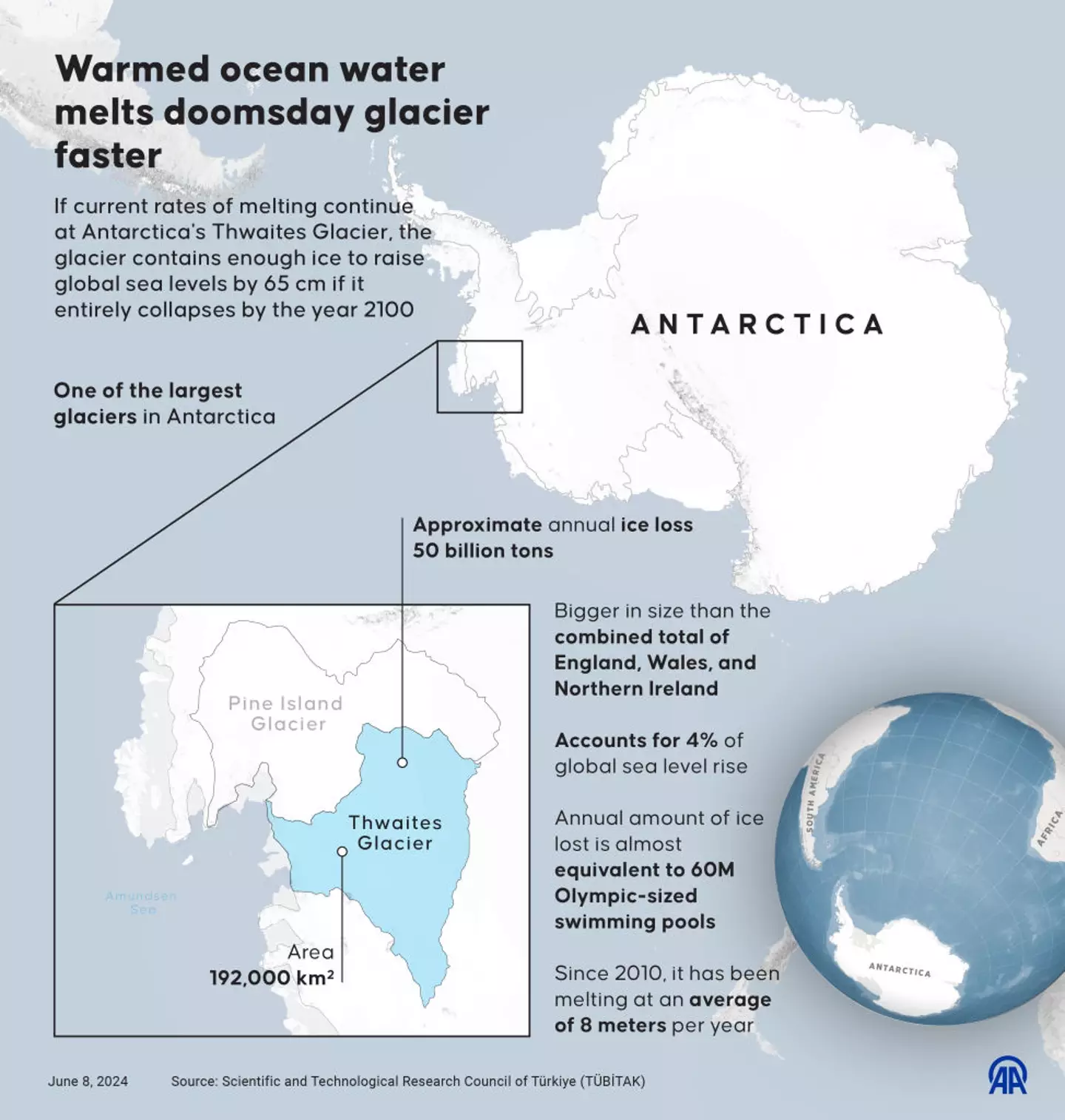
Experts have issued another terrifying update on the ‘Doomsday Glacier’ and it's not looking good.
Scientists have warned that the Thwaites Glacier in West Antartica - a slab of ice around the size of Great Britain - is continuing to retreat.
Earth's temperature has risen by an average of 0.11F per decade since 1850, and global warming appears to be taking its toll.
Advert
The main issue is that the volume of ice flowing into the sea from the glacier has more than doubled from the 1990s to the 2010s.
Combined with the wider region, the Thwaites Glacier accounts for eight percent of the current rate of global sea level rise of 4.6mm a year.
Latest predictions are now saying that major or complete ice loss of the West Antarctic Ice Sheet could take place in the 23rd century.
Urgent action is now needed to help slow this process down, experts have said.

Scientists from the UK and US are now planning to meet at the British Antarctic Survey (BAS) in Cambridge to discuss their observations this week.
Researchers are set to use a combination of underwater robots and new techniques to see if they can learn more about the future of the ‘Doomsday Glacier’.
Sea levels would raise by 3.3 metres if it all melted and would cause world-wide flooding, loss of habitat, and an increase in the number of storms.
In the UK alone, the likes of Hull, Peterborough, Portsmouth and parts of east London and the Thames Estuary would be at risk of being submerged in water.
Dr Rob Larter, from the Science Co-ordination of the ITGC and a marine geophysicist at BAS, said: “Thwaites has been retreating for more than 80 years, accelerating considerably over the past 30 years.
“And our findings indicate it is set to retreat further and faster.

“There is a consensus that Thwaites Glacier retreat will accelerate sometime within the next century.
“However, there is also concern that additional processes revealed by recent studies, which are not yet well enough studied to be incorporated into large-scale models, could cause retreat to accelerate sooner.”
Dr Ted Scambos, US science co-ordinator of the ITGC and glaciologist at the University of Colorado, added: “It’s concerning that the latest computer models predict continuing ice loss that will accelerate through the 22nd century and could lead to a widespread collapse of the West Antarctic Ice Sheet in the 23rd.
“Immediate and sustained climate intervention will have a positive effect, but a delayed one, particularly in moderating the delivery of warm deep ocean water that is the main driver of retreat.”
Topics: Global Warming, World News, Environment